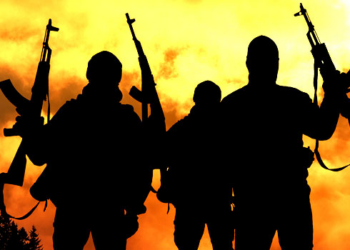By Awaal Gata
Following the twin blasts that occurred in Nyanya in April and a video that showed Boko Haram’s leader, Abubakar Shehu, as saying members of the deadly sect had infiltrated Abuja and would attack at any moment, residents of the Federal Capital Territory (FCT) were gripped by fear.
Consequently, many people did not open their shops for days, security was beefed up in schools, markets, malls, parks, hotels, brothels, bars, churches, mosques; and military roadblocks were increased in number, causing heavy traffic gridlocks in and around territory.
The Federal Capital Territory Administration (FCTA) and the police later listed terrorists’ soft spots, and residents, for a few days, tried to avoid them.
As widely said, Nigerians are very forgetful; weeks after the blasts, residents started visiting fun spots again and the security that was beefed up became loose again.
Even the fierce warning given by the FCTA that public football viewing centres should be avoided went unheeded.
However, the explosion that happened on Wednesday at Emab Plaza, killing 21 and injuring 17, has brought back their fear.
The Improvised Explosive Device (IED) which was used in the attack, officials said, was planted at the entrance of the mall, which is one of the biggest in Abuja, by the attackers who got there on a power bike around 3:50pm.
Blueprint’s investigation yesterday revealed that the attack, which is the third within two months, has got the residents worried about their survival in the territory like never before.
A handful of them who spoke to Blueprint observed that, after the Nyanya’s blasts, they expected a better handling of security hence went back to their normal activities but with the latest blast, their minds are now in a state that psychologists refer to as ‘siege mentality’.
Hamza Yusuf, who lives in FCDA quarters, says: “When two blasts occurred in Nyanya, I was thinking that it was because Nyanya is a suburb. Now it has happened in the city centre. How did the bombs get in? It means we are not safe in this city. The situation has made me to be suspicious and scared of people, because I no longer trust anybody. Once I’m around people, I become scare of who they are or what they will do to me”.
Another resident, Blessing Abdul, observes that; “in Abuja now, everyone needs to be careful and prayerful. You have to be careful of where you enter and who mingle with, because the country doesn’t have good security to take care of its citizens.
“If it were in other countries, terrorists would hardly get success in the capital city, but in Nigeria things are different. I am in serious fear, just like any other residents; for the attackers to have successfully rode on a power bike carrying explosives without the security agents detecting what they were carrying, we are in trouble in Abuja and in Nigeria as a whole.”
Corroborating Blessing, a taxi driver who gave his name simply as Tunde, observes that: “But they said we have CCTV cameras in Abuja; why didn’t the cameras saw the attackers and what they were carrying? What are they meant for? Or is it true that good ones were not supplied by the contractor who was given the contract? Emab plaza is one of the biggest malls in the city, and I know there are CCTV cameras in that area, why didn’t the cameras spot them?”
Tunde added that: “Nigeria must move away from the analog tactics they are using to tackle terrorism, because it won’t work. Nobody uses that again.”
Since on Wednesday when the attack happened, businesses in the area have been shut down; vehicular traffic has also been diverted to other roads. Nobody knows when the businesses would open again.



